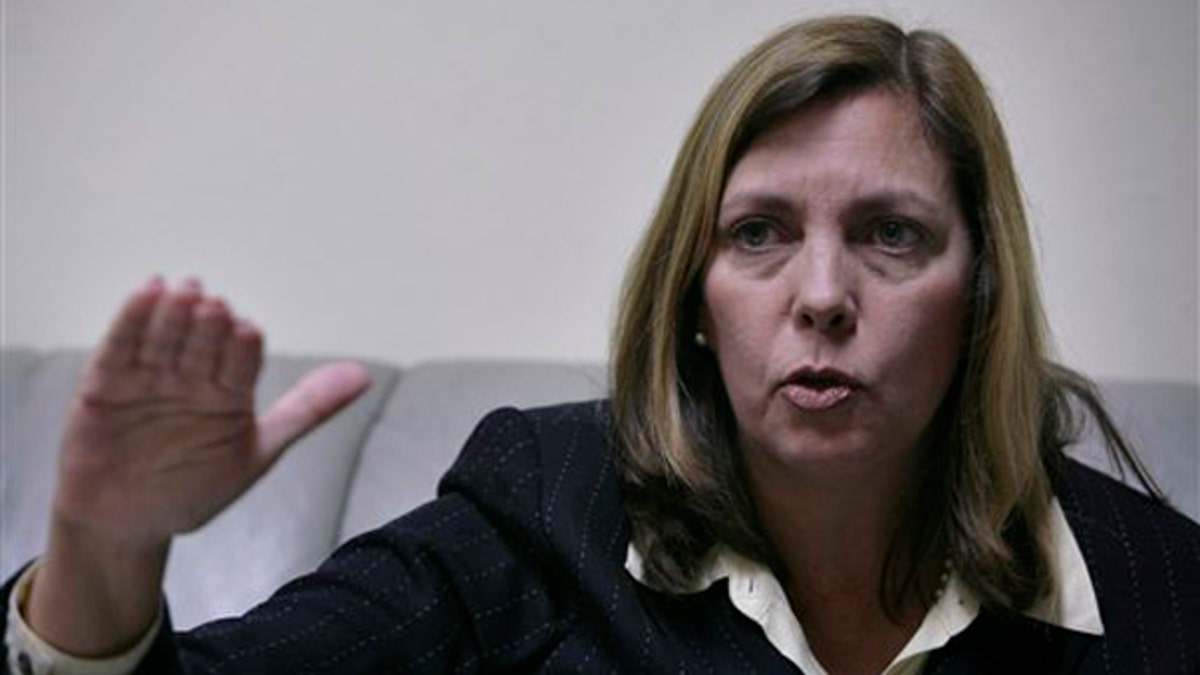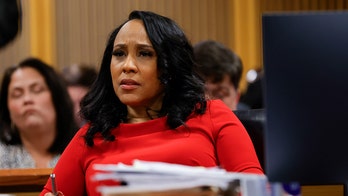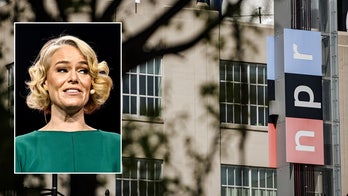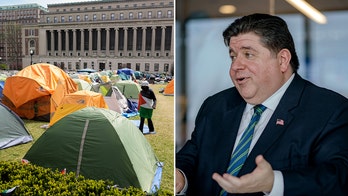
Josefina Vidal, director of the Cuban Foreign Ministry's North American affairs office, speaks during an interview with The Associated Press in Havana, Tuesday, Jan. 5, 2010. (AP)
Cuba has never been linked to Al Qaeda or its affiliates, but it's one of 14 nations whose travelers have been designated for tougher airline screening before boarding planes to the United States -- a restriction the island nation is vehemently protesting.
"We categorically reject this new hostile action by the government of the United States against Cuba," said Josefina Vidal Ferreiro, director of the Cuban Foreign Ministry's North American affairs office.
Calling the new security controls "discriminatory and selective," Ferreiro told The Associated Press that she lodged a formal protest with the top U.S. diplomat on the island and that Cuba's liaison at the Swiss Embassy in Washington delivered a similar complaint to the State Department.
Washington and Havana have been at odds since shortly after Fidel Castro assumed power in Cuba on New Year's Day 1959. The United States has maintained a trade embargo on the island for 47 years.
Cuba has been on the State Department's list of state sponsors of terrorism since the 1980s, though it has always maintained its inclusion had more to do with the United States' antagonistic policy toward the communist-governed nation than with evidence that it sponsors terrorism.
But State Department spokesman Phillip Crowley said Cuba earned its inclusion on the list.
"The United States has taken these actions because we think it's a prudent step to our assessment of the current threat to our interests and particularly to the aviation system around the world, and we'll continue to take these security measures for as long as we think that's necessary," Crowley told FoxNews.com.
Crowley added that countries land on the terror list for a number of reasons, including posing a threat to U.S. interests abroad.
"Recall we are combating political extremism, and Al Qaeda is a significant component of that but not the only one," Crowley said. "Cuba is on the state sponsor list for a reason and they have supported terrorist groups as part of their foreign policy, and that is something we take into account."
The new security measures were announced after the failed Christmas Day attempt to bomb a jetliner as it approached Detroit from Amsterdam. Witnesses said 23-year-old Nigerian Umar Farouk Abdulmutallab ignited an explosive mixture he was hiding in his underwear, but it failed to detonate or cause serious damage to the Northwest plane and its passengers.
Abdulmutallab was indicted Wednesday on charges of attempting to blow up the plane, attempted murder, possession of a firearm and other counts. He is said to have told U.S. investigators he received training and instructions from Al Qaeda operatives in Yemen.
Citizens from the 14 countries named for extra screening are supposed to have full-body pat-downs and their carry-on luggage checked. The other countries are: Iran, Sudan, Syria, Afghanistan, Algeria, Iraq, Lebanon, Libya, Nigeria, Pakistan, Saudi Arabia, Somalia and Yemen. Iran, Syria and Sudan are on the terror sponsor list with Cuba. Cuba is the only country of the 14 that is not predominantly Muslim.
"The arguments the U.S. uses to keep Cuba on the list of state sponsors of terrorism are totally unfounded," Ferreiro said. "Everyone knows they are politically motivated and only designed to justify the blockade against Cuba."
She said Cuba has a spotless record against terrorism, adding that Washington maintains a double standard because it harbors several individuals Cuba considers to have committed terrorist acts on the island.
Since the 1990s, few planes have been hijacked from the United States to Cuba, and several from Cuba to the United States were commandeered by hijackers seeking amnesty. In one of the most bizarre cases, an elderly Cuban couple drowned in 2001 after they attempted to hijack a plane belonging to a company that specializes in "mile-high sex" and force the pilot to fly to Cuba. The couple died after the plane crashed into the Florida Straits.
One Cuba analyst agrees Cuba's inclusion seems dissonant with the administration's objectives for the heightened security.
"Cuba should not be on the terrorist list," Wayne S. Smith, director of the Cuba program at the Center for International Policy, told FoxNews.com.
"For crissake, people have been flying back and forth for years and there's been no problem because there's no terrorist activity there," he said. "It's absurd."
Stephen Yates, a senior fellow in Asian studies at the American Foreign Policy Council and a former national security adviser to ex-Vice President Dick Cheney, told FoxNews.com that he supports the U.S. move not least because Cuba is home to the Guantanamo Bay prison for terrorist detainees.
"I think that it's only prudent that if someone somehow were able to move from that part of the territory over into Cuba proper, there is a relevance to high value terrorist targets being very close to them and warranting more advance screening of people coming from Cuba in the United States," he said.
Yates said other countries should be added to the list.
"If you look at Europe and other parts of the world that have had significant changes in migration and also significant problem with terrorists coming and going through their soil, it may be this needs to be a more expansive rather than shorter list."
But Smith said adding any nation to the list in an "arbitrary way, it really robs the list itself of the significance it should have. ... It becomes a phony document that's not to be taken seriously."
Crowley said President Obama has made clear what Cuba has to do to change the current relationship.
"If Cuba wants to get off this list, then it should stop its support for terrorism in the region and in the world," he said.




